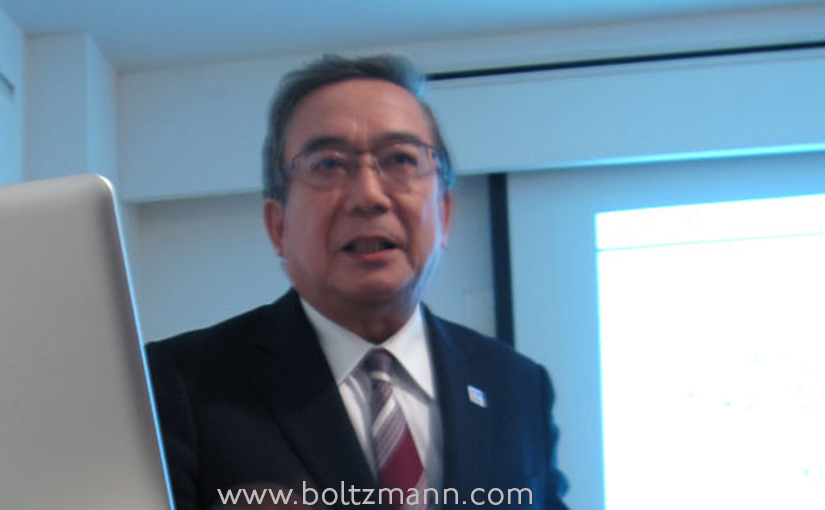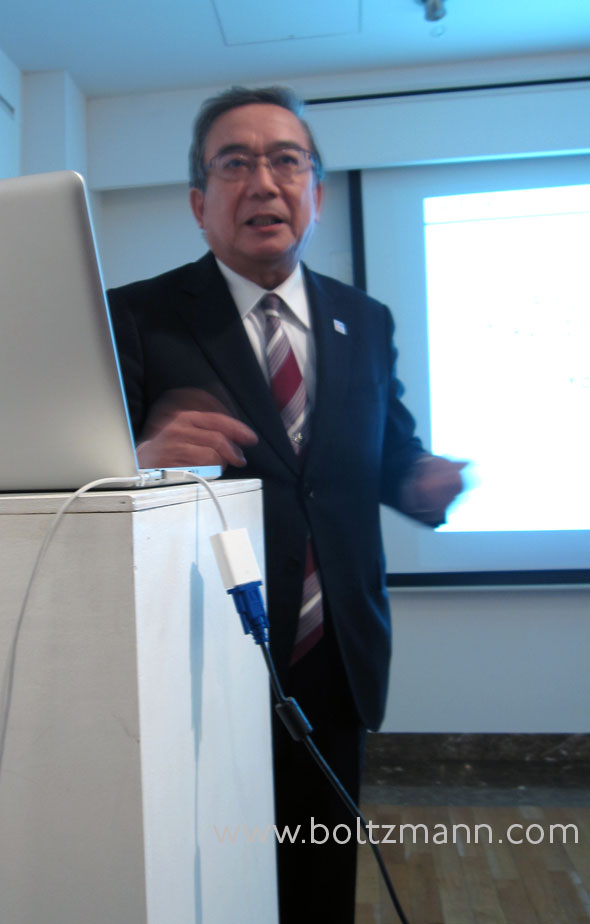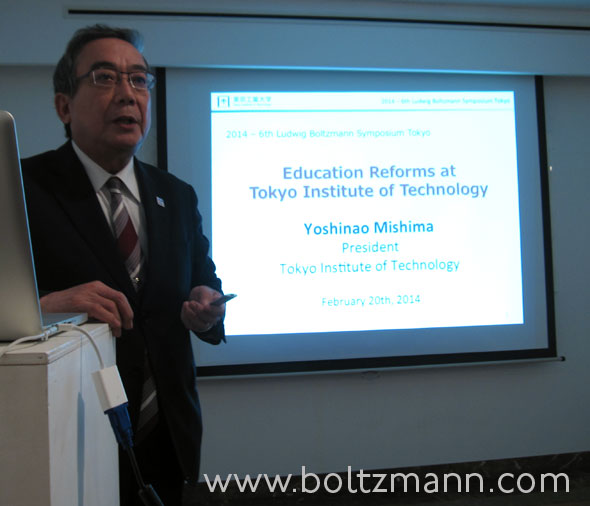Educational reforms at Tokyo Institute of Technology
Yoshinao Mishima
keynote talk given at the 6th Ludwig Boltzmann Forum, Embassy of Austria, Tokyo, 20 February 2014

by Yoshinao Mishima, President of Tokyo Institute of Technology. Materials scientist specialized on nano-materials and high-performance materials
summary written by Gerhard Fasol
Tokyo Institute of Technology – short history
- 1881: founded as The Tokyo Technical School
- 1929: elevated to a degree-conferring university as Tokyo Kogyo Daigaku (Tokyo Institute of Technology)
- 2004: reorganized as an independent administrative institution “National University Corporation Tokyo Institute of Technology”
Tokyo Institute of Technology – Statistics as of May 1, 2013
- Undergraduate students: 4,790 (of which 180 are foreign students)
- Graduate students: 3,611 Masters students + 1,512 Doctorate students = 5,123 (of which 943 (18.4%) are foreign students)
- Research students: 90
- Academic staff: 1,148
- Administrative staff: 472
Tokyo Institute of Technology – The mission is to develop a new and vibrant society
- produce graduates with a broad understanding of science and technology with both the ability and the determination to take on leading roles in society
- create and support innovative science and technology that will lead to sustainable social development
Tokyo Institute of Technology – Detailed mission statements cover three areas
- education: produce masters graduates who will thrive globally, and doctorate graduates who will come world’s top researchers are leaders
- contributions to society and international activities
- research: produce globally recognized results. Reform the research and support systems, in particular multi-step support for young researchers.
Tokyo Institute of Technology aims to become a world class university with greater diversity in faculty and students by 2030
Major educational reform plan (2013-…)
- Reborn masters and doctoral courses
- Reorganize departments, curriculum, courses
- Change from year-based study to credit based study
- Increase teaching in English, and numbers of foreign students
- Align with world top class universities for student transfers and credit transfers
- Enhance professional practice education for industry
A key challenge is that students primarily focus on earning credits to graduate, and lack a sense of mission to develop professional skills or to cooperate in our diverse global society. We need to change this type of behavior to create scientific leaders for the global arena.
We want to create a more flexible curriculum, that can be completed in a shorter time, so that students have more time for personal professional development and international exchange activities and communication skills.
Tokyo Institute of Technology: The Board of Directors decided on three pillars for education reform on September 6, 2013
- Build education system to become one of the world’s top universities
- Innovate learning
- Promote ambitious internationalization
We will move to a new and more flexible curriculum system, where undergraduate schools and graduate schools are blended.
Tokyo Institute of Technology: new initiatives
We are introducing a number of initiatives including active learning, a faculty mentor system where every faculty member mentors 5-10 students, increased numbers of lectures in English, invited top global researchers, provide facilities for foreign researchers, and broaden academic cooperation agreements and mutual accreditation of credits and degrees.


Leave a Reply